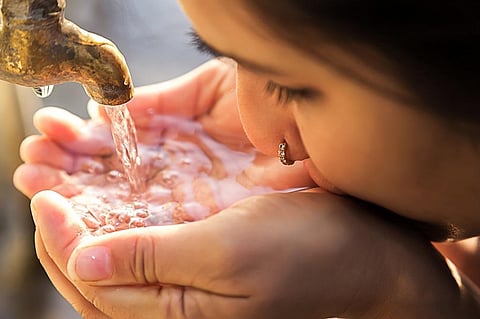Every drop to drink: 24x7 potable tap water in Puri has environmental, social benefits
About a decade ago, in a London hotel room, I was both overjoyed and sceptical to discovered a tap with sticker that read: Drinking water. Overjoyed because I had not imagined seeing this and sceptic because the hotel was still selling bottled water for an exorbitant price.
I had only one choice: To drink from the tap. I returned unhurt. The tap had my trust, it kept it.
Fast forward to 28 July, 2021: The chief minister of Odisha, my home state, gave a pleasant surprise — a reason to be overjoyed similar to the one in London. In the coastal city of Puri, an important city of religious importance, the state government has made this very commitment: Trust your tap!
The move ensured the right to safe water, flowing from the taps 24x7, both for the residents of the city and tourists.
Not only that a quarter of a million residents will now be able to get clean drinking water directly from the taps, but also this will benefit the tourists. It is estimated that each year, about 20 million tourists visit this heritage city famous for the Jagannath Temple and a beautiful sea beach.
The government put this achievement on a par with cities like London and New York, and claimed that Puri is the first city of the country to have achieved this feat.
Leaving aside the comparison for now, for a city in which almost half of the dwellers did not have access to clean drinking water a few days ago, the transformation to a 100 per cent coverage is a laudable thing.
Equitable access to proper quantity and quality of water to all sections of the population is required to not only meet the United Nations-mandated Sustainable Development Goals (SDG) but also to create a happy and thriving society.
The chief minister wrote in the microblogging platform Twitter: Quality drinking water is closely linked to human health, human development index and economy.
The water supplied is said to be compliant with the Indian Standard 10500 specifications of the Bureau of Indian Standards.
Sensors in the distribution lines will keep a track of leakages and thus ensure that the water supplied is clean at the point of use, according to the government. Wastage due to leakage would also be reduced due to that. The pipeline network has been revamped for this purpose, the government added.
The other important pillars of an inclusive water supply system include affordability and accountability.
In what could be called a textbook case for water reforms advocated by proponents of 24x7 water supply systems, the government claimed Puri has also become the only city in the country to have 100 per cent coverage of water meters.
Every drop of water being consumed is being accounted and paid for. Local women, called the Jal Sathis, are responsible for collecting water tax.
The government says the charge is nominal and hence, affordable. It will take some time to get feedback from citizens on this.
We will have to wait and watch how accountable the process is. So far, we have not been able to make anyone responsible for the impacts of contaminated drinking water in different cities.
Each time a jaundice outbreak is reported, we see a responsibility-shifting exercise between the water supplier and city authorities. Back in London, the Thames Water Utilities Ltd that is responsible for water supply and waste water treatment in most of Greater London was handed over a £2 million fine in 2018 for a “reckless failure” that led to the polluting of a tributary of the Thames with raw sewage.
I cannot envisage anything like that happening to a polluter here.
A 24x7 water supply project is a great idea and, if properly executed, it can actually save a lot of water and money for the people. Then there are other benefits.
For a city like Puri, with a huge footfall of tourists, the project can actually reduce the use of plastic bottles and related pollution of the city and sea.
This project will reduce the use of plastic bottles by 30 million units and overall plastic waste plastic waste by 400 tonnes per year. That, I would say, is a great benefit.
What goes beyond the stated benefits of the project is the fact that the reduction in plastic bottles can reduce burden on natural resources. The impact of bottled water on natural resources is 3,500 times higher than for tap water, a recent study found.
The same study, however, has a lesson for Odisha. It was done in Barcelona at a time when bottled water was getting increasingly popular despite improvements in the quality of tap water.
The trust in the tap has to be ingrained in the minds of the people. For that to happen, the system needs to be proactive in a real sense.
The state’s chief minister has taken a visionary step. It can pave the way for a new water supply regime despite the many odds if the authorities work in the true spirit of the right to water framework.
Views expressed are the author’s own and don’t necessarily reflect those of Down To Earth.


